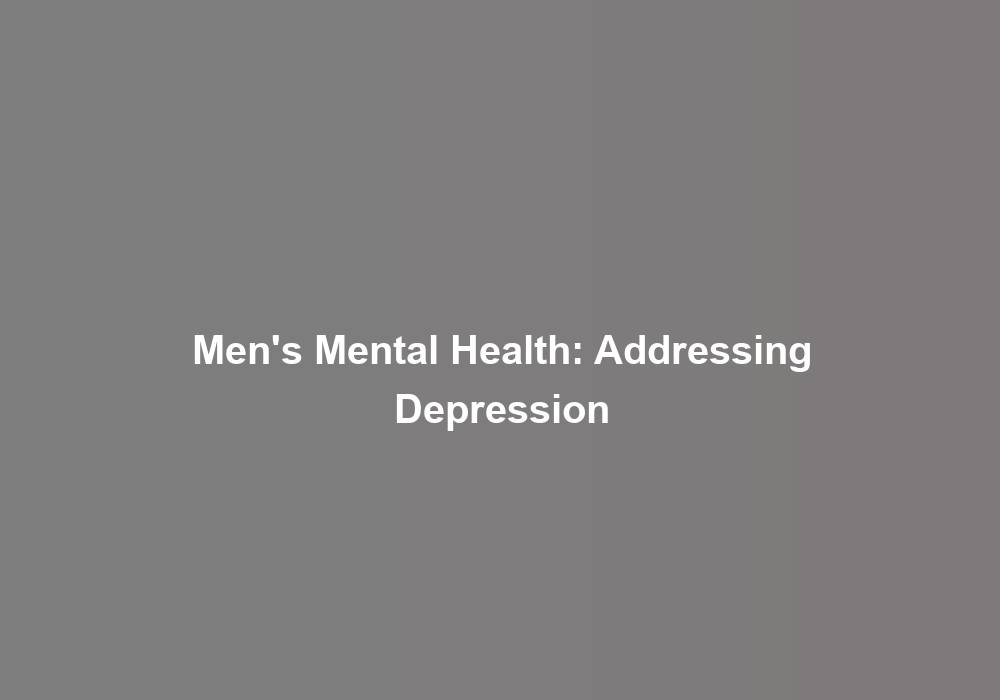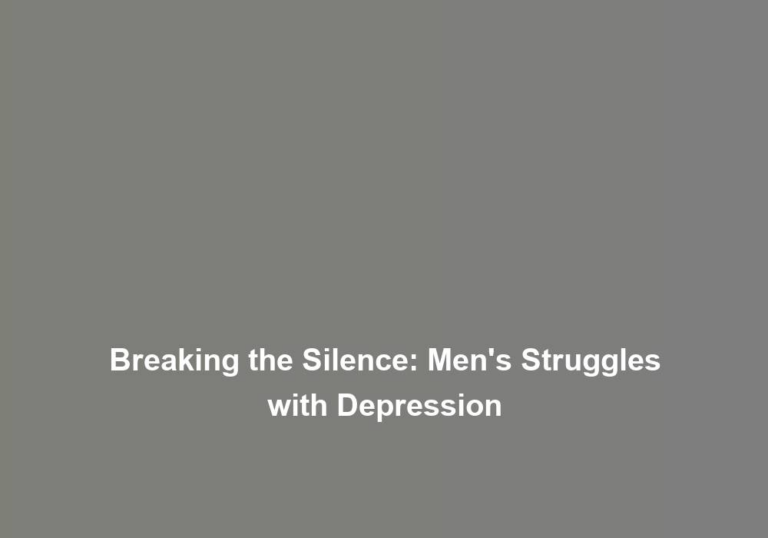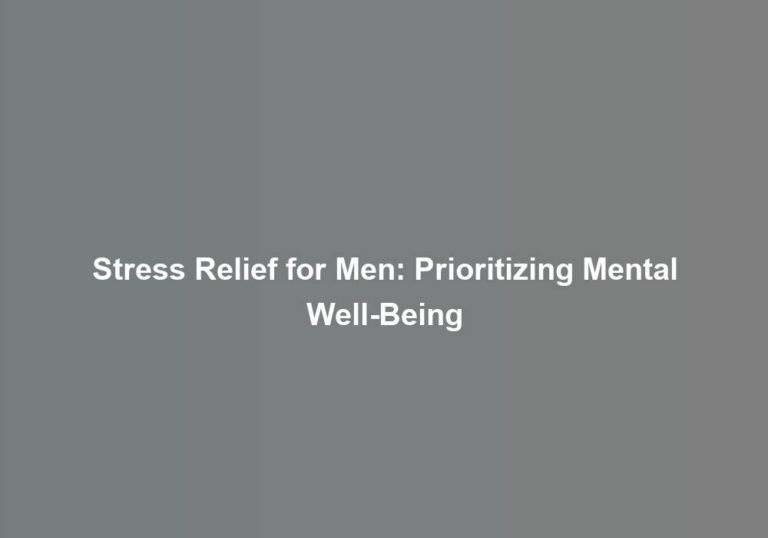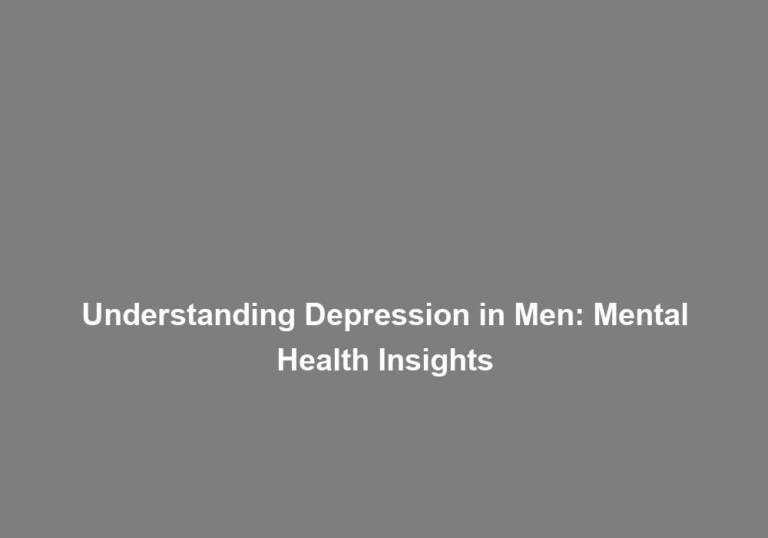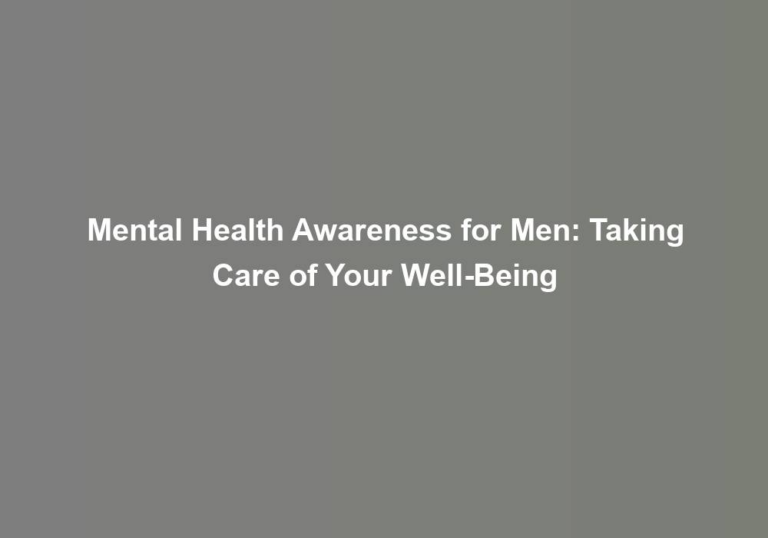Men’s Mental Health: Addressing Depression
You know that approximately 6 million men in the United States are affected by depression each year, yet the conversation around menG??s mental health continues to be overlooked. The impact of depression on menG??s lives is significant, yet there are unique challenges and barriers that often prevent them from seeking help and support. Understanding the societal expectations and stigma surrounding menG??s mental health is crucial, but itG??s just the beginning. So, where do we go from here? How can we begin to address the complexities of menG??s depression and promote a healthier approach to well-being?
The Unique Challenges of MenG??s Depression
Addressing menG??s depression presents unique challenges due to societal expectations of masculinity and the stigma surrounding mental health. The pressure to conform to traditional gender roles often discourages men from openly discussing their emotions and seeking help for mental health issues. This expectation of stoicism and emotional suppression can lead to a reluctance to acknowledge and address feelings of depression, ultimately impacting their mental well-being. Men may feel compelled to uphold an image of strength and resilience, fearing that expressing vulnerability may be perceived as a sign of weakness, further contributing to the mental health perception dilemma.
The societal construct of masculinity often discourages open emotional expression, creating a barrier for men to seek support and treatment for depression. This can result in feelings of isolation and a lack of belonging, as men may struggle to find avenues for sharing their experiences and seeking help without feeling judged or emasculated. The pressure to conform to these traditional gender norms can lead to internalized stigma, hindering men from acknowledging their struggles and reaching out for assistance.
Understanding the impact of masculinity pressure and gender roles on menG??s mental health is crucial to providing effective support and breaking down barriers to seeking help. By fostering an environment that encourages open and honest discussions about emotions and mental well-being, men can feel empowered to prioritize their mental health without the fear of judgment or diminished masculinity. It is essential to create inclusive spaces that validate menG??s experiences and provide avenues for emotional expression, ultimately promoting a sense of belonging and acceptance in the journey towards mental wellness.
Societal Expectations and Mental Health Stigma
ItG??s important to recognize the impact that societal expectations and mental health stigma can have on menG??s well-being. These factors can create significant barriers to seeking help and getting the support they need. Understanding the stigma impact and cultural barriers is crucial in addressing menG??s mental health and promoting a more open and supportive environment.
Stigma Impact
Societal expectations and mental health stigma can significantly impact menG??s willingness to seek help for depression. This stigma is rooted in gender stereotypes that dictate men should be strong, stoic, and able to handle their emotions without seeking help. The impact of this stigma on menG??s mental health is profound, leading many to suffer in silence rather than seek the support they need. The fear of being perceived as weak or less masculine can prevent men from acknowledging their mental health struggles or reaching out for help. Breaking free from these societal expectations and stigma is crucial for creating an environment where men feel comfortable seeking help for their mental health. ItG??s important to challenge these stereotypes and provide a supportive, understanding space for men to address their mental health.
Cultural Barriers
Cultural barriers, such as traditional gender roles and societal expectations, can create significant obstacles for men in acknowledging and addressing their mental health struggles. These cultural norms often dictate that men should be stoic, self-reliant, and not show vulnerability. This can lead to a reluctance to seek help for mental health issues due to the fear of being perceived as weak or unmanly. As a result, many men may suffer in silence, unaware of the potential support and resources available to them. ItG??s crucial to promote mental health awareness and challenge these societal expectations. By creating an environment where men feel comfortable discussing their emotions and seeking help, we can break down these cultural barriers and provide the support and understanding necessary for men to prioritize their mental well-being.
Barriers to Seeking Help for Men
You may find it challenging to seek help for your mental health due to the stigma around expressing emotions and the pressure to conform to traditional masculinity norms. These societal expectations can make it difficult for you to acknowledge your struggles and reach out for support. Understanding these barriers is an important step in breaking down the obstacles that may be preventing you from seeking the help you need.
Stigma Around Emotions
Many men face significant barriers when it comes to seeking help for their mental health due to the stigma surrounding emotions. ItG??s important to acknowledge that emotional expression is often stigmatized in our society, and this can have a profound impact on menG??s willingness to seek help for their mental health. Here are some key points to consider:
- Emotional Expression: Men are often socialized to suppress their emotions, leading to a reluctance to seek help and a tendency to internalize their struggles.
- Encouraging Healthy Expression: Creating safe spaces for men to openly express their emotions can help break down these barriers.
- Mental Health Stereotypes: There are harmful stereotypes that associate seeking help with weakness, perpetuating the stigma surrounding menG??s mental health.
- Challenging Stereotypes: By challenging these stereotypes, we can create a more inclusive and supportive environment for men to seek the help they need.
Traditional Masculinity Norms
When adhering to traditional masculinity norms, men may encounter significant barriers that hinder their willingness to seek help for their mental health. The concept of toxic masculinity perpetuates the idea that men should be strong, stoic, and self-reliant, which can make it challenging for them to acknowledge their struggles and seek support. These norms often discourage men from expressing vulnerability or seeking help for mental health issues, leading to feelings of isolation and reluctance to open up about their experiences. However, itG??s important to recognize that mental health awareness is evolving, and seeking help is a sign of strength, not weakness. By challenging traditional masculinity norms and fostering a culture of open communication and support, we can create an environment where men feel empowered to prioritize their mental well-being.
Strategies for Coping With Depression
What are effective coping strategies for managing depression and improving mental well-being?
When struggling with depression, itG??s essential to find effective coping strategies that can help you navigate through challenging times and improve your mental well-being. Here are some powerful techniques to consider:
-
Mindfulness Techniques and Self-Care Practices: Engaging in mindfulness activities, such as meditation or deep breathing exercises, can help you stay present and reduce the impact of negative thoughts. Additionally, prioritizing self-care practices like getting enough sleep, eating nutritious meals, and engaging in physical activity can significantly contribute to your overall well-being.
-
Positive Affirmations and Gratitude Journaling: Incorporating positive affirmations into your daily routine can help reframe negative thinking patterns and boost self-esteem. Similarly, keeping a gratitude journal can shift your focus towards the positive aspects of life, fostering a sense of appreciation and contentment.
-
Seeking Social Support and Professional Help: Surrounding yourself with supportive and understanding individuals can provide a sense of belonging and comfort. Whether itG??s friends, family, or a support group, having a strong social support network can make a meaningful difference. Additionally, seeking professional help from a therapist or counselor can offer valuable guidance and strategies for managing depression.
Support Resources for MenG??s Mental Health
To effectively support menG??s mental health, it is crucial to provide accessible and tailored resources that address their unique needs and challenges. When it comes to therapy options, itG??s important to find a mental health professional who understands the specific issues men face. Look for therapists who are experienced in dealing with menG??s mental health and who create a safe and non-judgmental space for open discussions. Support groups can also be immensely beneficial. These groups provide an opportunity to connect with other men who may be going through similar experiences, offering a sense of community and understanding that can be incredibly comforting.
Online resources are increasingly popular for men seeking mental health support. There are various platforms offering virtual therapy sessions and mental health resources specifically tailored to men. Community programs, such as workshops and seminars focused on menG??s mental health, can also provide valuable support. These programs often offer practical tools and strategies tailored to the unique needs of men.
ItG??s essential to remember that seeking support is a sign of strength, not weakness. It takes courage to reach out for help, and there are resources available to support you through this journey. Whether itG??s through therapy, support groups, online resources, or community programs, finding the right support can make a significant difference in your mental well-being.
Promoting a Healthier Approach to Well-being
In promoting a healthier approach to well-being for men, fostering a supportive environment that recognizes and addresses their unique mental health needs is paramount. ItG??s crucial to acknowledge the significance of menG??s self-care and mental health awareness in shaping a positive well-being. Here are some essential aspects to consider:
-
Embracing Vulnerability: Encouraging men to express their emotions and seek help when needed is vital. Creating an environment where vulnerability is normalized can significantly impact their well-being.
-
Promoting Holistic Health: Emphasizing the importance of physical, emotional, and mental well-being as interconnected components can lead to a more balanced and healthier lifestyle for men.
-
Challenging Stereotypes: Breaking down societal expectations that may hinder men from seeking help or practicing self-care is essential. ItG??s crucial to redefine what it means to be a man in the context of mental health and well-being.
Conclusion
YouG??ve learned about the unique challenges of menG??s depression and the societal expectations that can make it difficult to seek help. But there are strategies for coping and support resources available to help you through. Remember, itG??s okay to not be okay, and seeking help is a sign of strength, not weakness. By promoting a healthier approach to well-being, you can take control of your mental health and live a happier, more fulfilling life.

